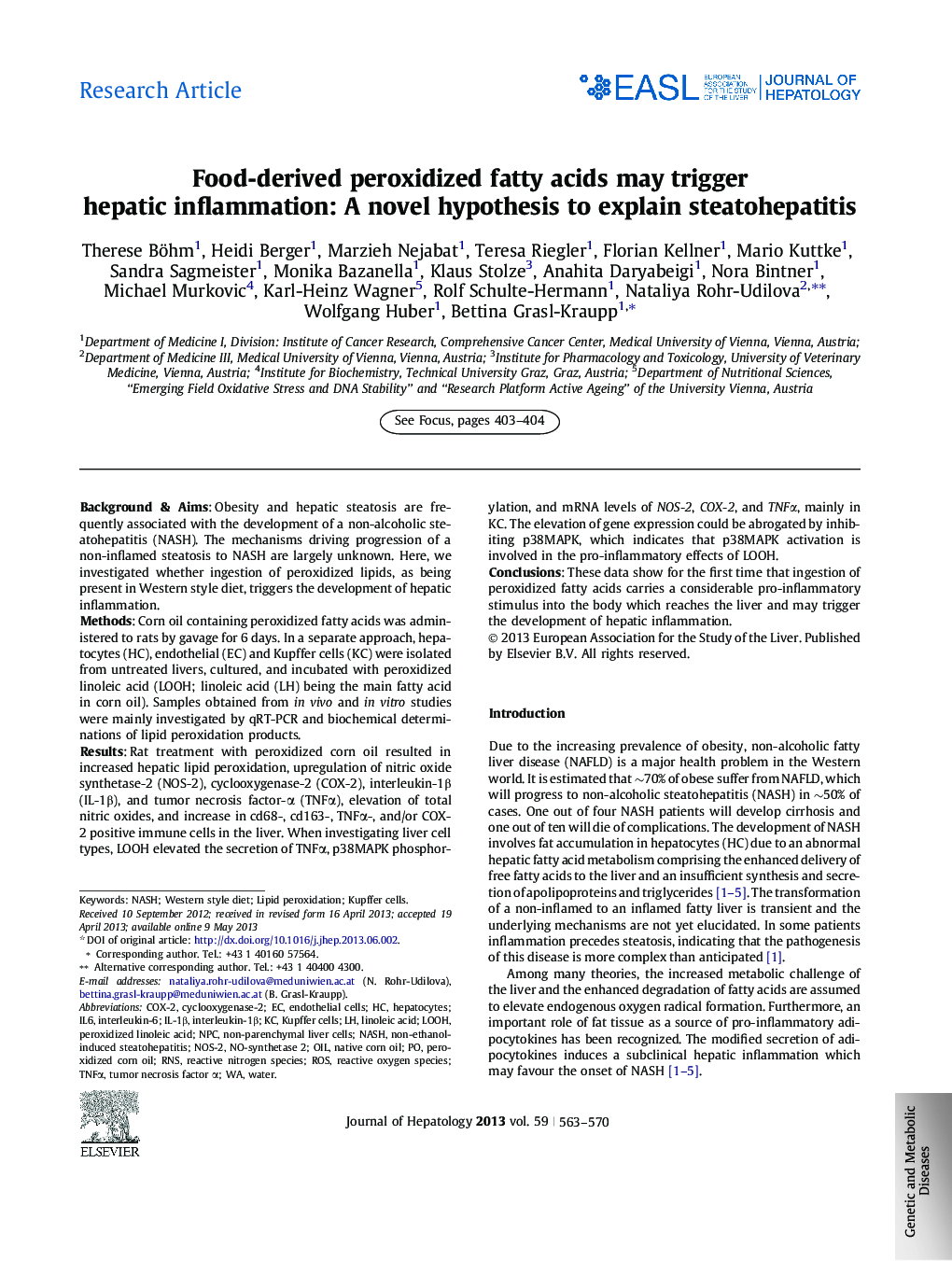| کد مقاله | کد نشریه | سال انتشار | مقاله انگلیسی | نسخه تمام متن |
|---|---|---|---|---|
| 6104124 | 1211135 | 2013 | 8 صفحه PDF | دانلود رایگان |
Background & AimsObesity and hepatic steatosis are frequently associated with the development of a non-alcoholic steatohepatitis (NASH). The mechanisms driving progression of a non-inflamed steatosis to NASH are largely unknown. Here, we investigated whether ingestion of peroxidized lipids, as being present in Western style diet, triggers the development of hepatic inflammation.MethodsCorn oil containing peroxidized fatty acids was administered to rats by gavage for 6 days. In a separate approach, hepatocytes (HC), endothelial (EC) and Kupffer cells (KC) were isolated from untreated livers, cultured, and incubated with peroxidized linoleic acid (LOOH; linoleic acid (LH) being the main fatty acid in corn oil). Samples obtained from in vivo and in vitro studies were mainly investigated by qRT-PCR and biochemical determinations of lipid peroxidation products.ResultsRat treatment with peroxidized corn oil resulted in increased hepatic lipid peroxidation, upregulation of nitric oxide synthetase-2 (NOS-2), cyclooxygenase-2 (COX-2), interleukin-1β (IL-1β), and tumor necrosis factor-α (TNFα), elevation of total nitric oxides, and increase in cd68-, cd163-, TNFα-, and/or COX-2 positive immune cells in the liver. When investigating liver cell types, LOOH elevated the secretion of TNFα, p38MAPK phosphorylation, and mRNA levels of NOS-2, COX-2, and TNFα, mainly in KC. The elevation of gene expression could be abrogated by inhibiting p38MAPK, which indicates that p38MAPK activation is involved in the pro-inflammatory effects of LOOH.ConclusionsThese data show for the first time that ingestion of peroxidized fatty acids carries a considerable pro-inflammatory stimulus into the body which reaches the liver and may trigger the development of hepatic inflammation.
Journal: Journal of Hepatology - Volume 59, Issue 3, September 2013, Pages 563-570
